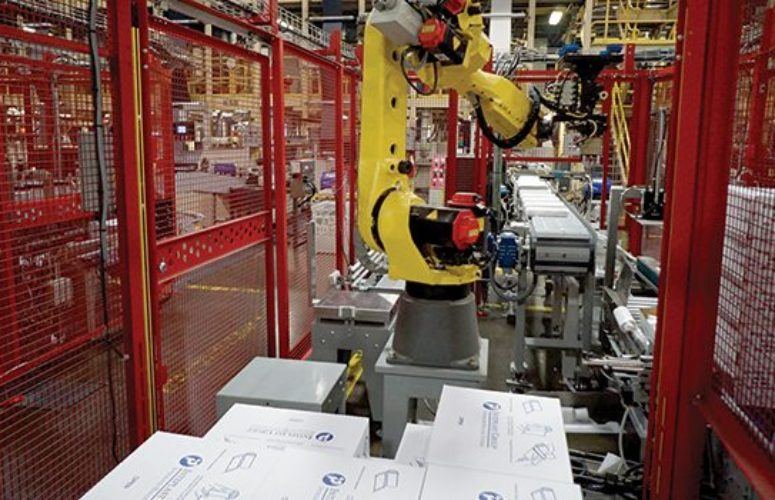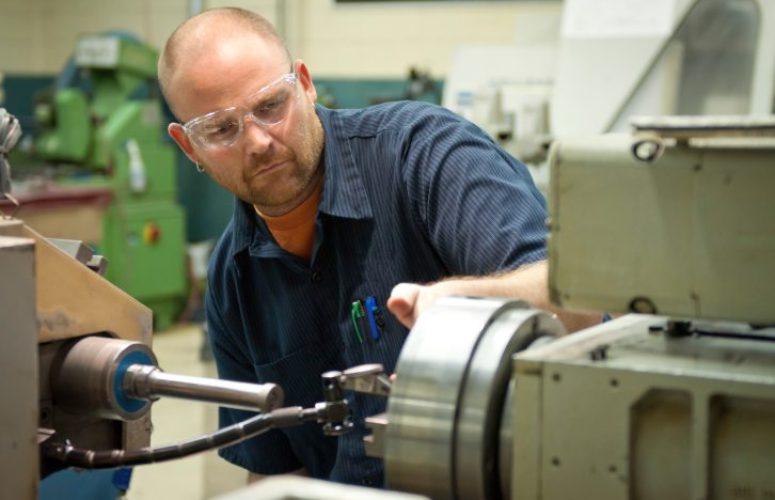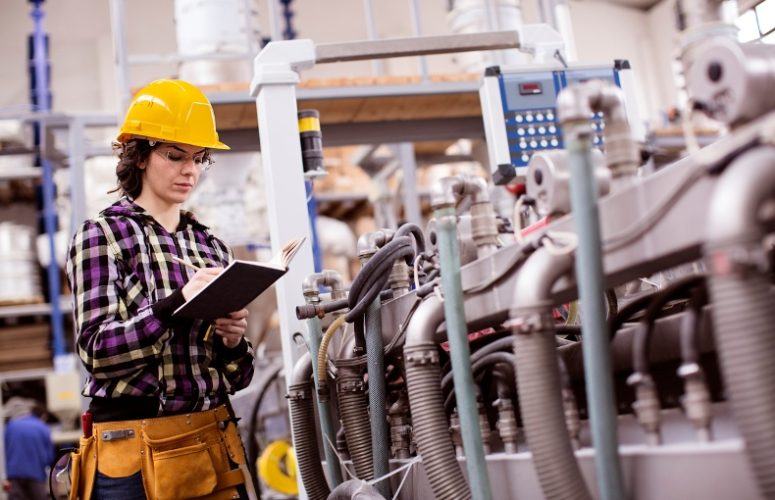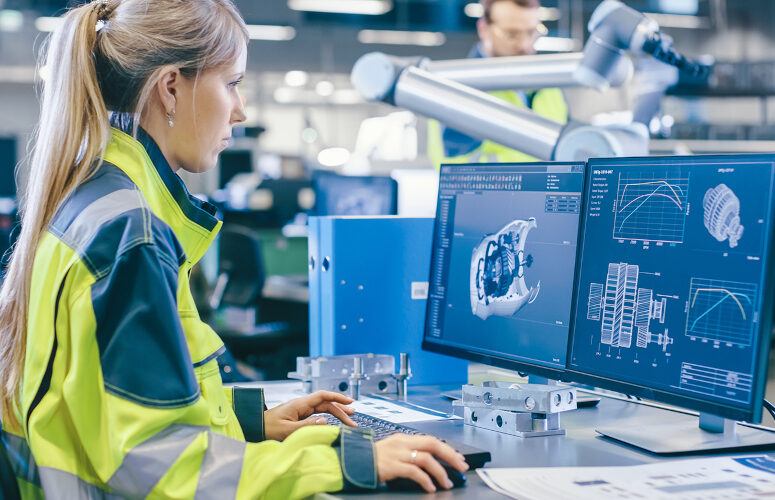
Manufacturers Need Well-Rounded Workers
Training NJ's Workforce
By Jennifer Lesser, Contributing Writer On Mar 27, 2017As technology continues to transform the way many of the state’s businesses conduct their daily operations, New Jersey’s manufacturing industry is facing new challenges when it comes to hiring qualified workers.
According to Dr. John W. Kennedy, Ph.D, chief executive officer of the New Jersey Manufacturing Extension Program, Inc. (NJMEP), many people don’t realize the vast array of positions available within the state’s top manufacturing firms. “Whether you realize it or not, manufacturing continues to be a financial driver for the economy – but what people forget is that manufacturing companies are also full-fledged businesses,” he asserts. “They’re not just looking for a machine operator or an assembler or welder, they’re also looking for engineers, accountants or sales and marketing professionals.”
The NJMEP frequently conducts surveys to pinpoint the types of jobs that local manufacturing companies are struggling to fill, and the results typically indicate a lack of technical sales professionals or accountants as opposed to welders or machinists.
Indeed, the state’s manufacturing companies have continued to remain on the cutting-edge of technology to streamline their processes and boost production, from innovations in computerized operations to the use of robotic arms to conduct routine tasks. “These companies still need to hire people with the knowledge and skills in machines and assembly and welding … but technology has raised the bar in that there are now so many other opportunities available,” Kennedy says. “There’s an impression that manufacturing companies aren’t hiring because everything is robotic, but that’s far from the truth … and even if it was, somebody still has to build that robot in the first place.”
In many cases, technological advancements are actually creating new employment opportunities in the manufacturing industry. According to Adam Pitel, vice president of operations for Magna-Power Electronics, Inc. in Flemington, the company is focusing on implementing robotic automation into the manufacturing process. “If we can get a robot to do a repetitive task, I would much rather let our employees work on higher-level operations,” he says. Today, the company has autonomous vehicles for tasks such as handling inventory, and will soon be utilizing robotic arms for other operations. “We’re investing in automation and looking at long-term investments in our equipment to help our employees grow into higher-level jobs within the company,” he adds.
Inteplast Group employs some 300 people in its New Jersey headquarters in Livingston, and employees run the gamut from accounting and financial services to marketing and customer service. “I think a lot of people think of the manufacturing industry as working on an assembly line or operating machinery, but a lot of those processes are automated and electronically controlled now … which ends up creating new jobs for the people who can design and control that manufacturing equipment,” explains Brenda Wilson, manager of human resources and communications for Inteplast Group. “That’s why in today’s manufacturing industry, engineers and computer specialists who are creating codes to run these kinds of machines will continue to be in demand … but one area that’s often overlooked are positions in marketing and customer service, as these are employees who need to have both technical knowledge as well as strong interpersonal skills.”
In business for more than 70 years, advanced manufacturing firms like Imperial Machine and Tool Company in Columbia are also taking their employees into a new era of technology with processes like three-dimensional metal printing. “This is truly the rebirth of manufacturing; the digital revolution is impacting everything about the industry, and we’re excited to find employees who see a future in this rewarding and exciting high-tech field,” says Christian M. Joest, president of Imperial Machine and Tool Company.
As such, the company has made great strides in seeking out students from nearby universities who want careers in fields like engineering. “We take pride in offering careers to potential employees – not just a job. We have a lot of insightful and skilled people who work for us, from welders to computer numerically controlled (CNC) programmers, and we believe it’s important to train our employees effectively and actively so they have a job for life,” Joest says.
The company offers a robust internal rewards program and encourages employees to further their education and advance to higher-level positions. “Our employees don’t necessarily have to be highly skilled in a manufacturing environment right off the bat, because we’ll train them – but what we do want are highly motivated and engaged employees, and we take hiring very seriously because we want them to stay here and grow with the company.”
For many manufacturing firms, that often means recruiting young employees right out of college, or even high school. “While many people still advocate for the college degree, our employees are making very good salaries by the time they’re 25 … which enables them to buy a house and save for their future instead of coming out of college with a mountain of debt and struggling to find employment in a challenging job market,” Joest adds.
Despite the growing opportunities at the state’s manufacturing companies, many firms are still struggling to fill available positions to support their continued growth. “The reality is that there just aren’t enough people in the pipeline for manufacturing companies – not only in New Jersey, but across the country,” Kennedy explains.
Clifford F. Lindholm, III, president and CEO of the Falstrom Company in Passaic, agrees that the number of skilled employees with an interest in manufacturing continues to dwindle. “The availability of individuals who could walk in the door and be productive employees on day one is significantly limited; part of the reason is that our high school and vocational education programs don’t have the same emphasis on manufacturing that they did 30 or 40 years ago,” he explains.
Despite all of that, Lindholm says the company has been experiencing a hiring surge over the past year, and recently restructured their hiring to accommodate three employment levels in every department to provide employees with the opportunity to advance to higher-level positions with better compensation as they grow with the company.
In the meantime, manufacturing companies are doing their part to find and train skilled, motivated employees. Kennedy notes that many of the state’s mid-sized manufacturing companies are devising their own programs to help recruit and train employees, and the NJMEP teams up with smaller companies to provide in-plant training as well as develop partnerships with institutions like Lincoln Tech and county colleges.
When they do find the right employees, manufacturing companies have learned that they must continue to make investments in their workforce and promote lifelong learning and continued career development. “It helps keep our employees’ skills sharp, keeps them looking for ways to do their jobs better, and provides us with a competitive advantage,” Lindholm concludes.
Related Articles:






